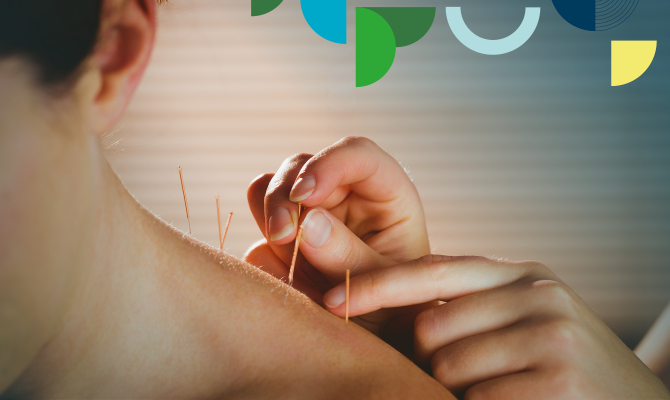Recovering from Your Summer Injury
3 Dec 2020
31 Jan 2023

Acupuncture is a form of Chinese medicine where very thin needles are inserted into certain body parts to relieve specific symptoms associated with various health concerns.
Growing up, I spent a lot of time doing martial arts and have always been interested in Eastern medicine. I was also already doing Western sports medicine, so I decided to study acupuncture to complement this.
Studying to become an acupuncturist in Aotearoa takes three to four years. In the course, there’s a mix of theory and application between papers focused on biomedicine and traditional Chinese medicine.
Acupuncture can treat many ailments, including insomnia, post-op nausea, post-op pain, general gut inflammation, lower back pain, and seasonal allergies.
At Habit Health, our team uses acupuncture and acupressure to treat musculoskeletal pain – which is a fancy way of saying general muscle sprains, strains and pain.
Although the treatment involves needles, acupuncture doesn’t and shouldn’t hurt. Many describe the feeling as a dull ache or pulling sensation as the needles are placed around the body. After a treatment, there should be no pain in the treated area either.
Acupuncture is a safe and regulated treatment – seeing a registered acupuncturist will ensure you’re in good hands. Habit Health acupuncturists are fully trained and experienced.
Almost anyone is a good candidate for acupuncture – especially because acupuncture can help treat such a huge range of issues. If you have high pain levels, acupuncture can help with other standard care you’re getting. For children, there are acupuncturists that focus specifically on pediatric acupuncture.
Acupressure and acupuncture come under the same framework of Chinese medicine, focusing on the same meridians or points around the body. Acupressure is more based on manual massage techniques with the hands, and acupuncture uses needles.
To get funding from ACC for acupuncture treatment, you have to be referred by a physio or GP. This could be a Habit Health physio or another physio you might be seeing. Once you’re referred, you can be partly funded for as many as 12 sessions over 12 weeks for an ACC covered injury, and if your acupuncturist believes you could benefit from further sessions, they can apply to ACC on your behalf for more sessions to be partly funded.
There have always been sceptics of acupuncture. Some people seem to think it's simply a placebo.
But there’s a good amount of scientific evidence behind acupuncture and how it can help with a huge variety of conditions. What we do is supported by research – and I’ve personally seen acupuncture help so many of the clients we have through at Habit Health.
Our first appointment with a new client is for an hour – and a lot of questions are involved so we can get a holistic view of your general health and wellbeing. We’ll ask about everything from your digestion, diet, stress, ailments and injuries. We’ll get an understanding of your Western medical history, any medication you’re taking or medical devices you might be using so we know exactly how to treat you.
We always recommend that people take it easy after a treatment. People respond differently, although the most common after-effects are people feeling tired, energised and really hungry! It’s important to just let the body do its thing.
We recommend that sportspeople don’t do their hard sessions after an acupuncture appointment. So planning ahead is a bit of a must.
If you want to know whether acupuncture is right for you, talk with your primary health care provider – whether your GP or physio. If they think you could benefit from some acupuncture, feel free to get in touch with Manson Williamson at manson.williamson@habit.health – he can answer all your questions.